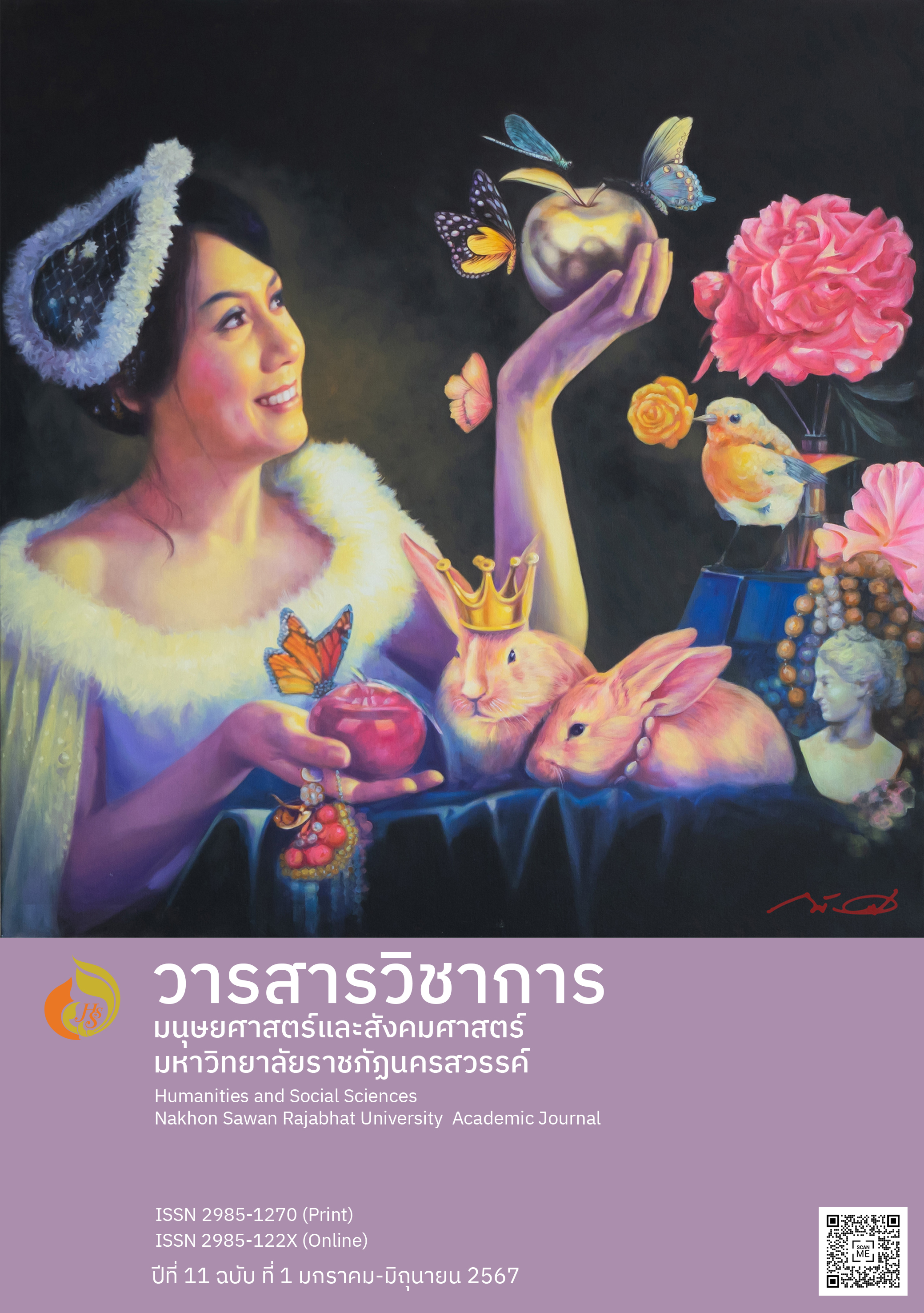The Enhancement of EFL Learner’s Inspiration and Participation in English Learning by Employing a Card Game (Magic: The Gathering)
Main Article Content
Abstract
This academic article aimed to present a process for creating inspiration and promoting participation in learning the English language using a card game called "Magic: The Gathering" (MTG) among English as a foreign language learners. MTG is a collectible card game (CCG) and tabletop game developed primarily in English, with a long history and global popularity among people of all genders and ages. Playing MTG is suitable for English language learners, enhancing reading comprehension and interpretation skills from card content, improving speaking and listening skills through communication and interaction with other players, and learning new vocabulary, both general words and specific words of card games community. Additionally, the enjoyment and pleasure derived from playing this type of card game help foster inspiration that promotes active participation in English language learning. This is a crucial factor in facilitating the language learning process both inside and outside the classroom.
The authors also introduced methods for incorporating MTG to enhance English language teaching in classrooms, providing teachers with a framework for promoting self-directed learning among English language learners. The article discusses limitations in using MTG as a language teaching tool, allowing educators to tailor the learning process to suit learners and maximize benefits.
Article Details

This work is licensed under a Creative Commons Attribution-NonCommercial-NoDerivatives 4.0 International License.
References
Aytuna, D. (2020). Differences Of Player Experiences Between Physical And Digital
Media A Case Study Of: "Magic: The Gathering". [Master’s Thesis, Kadir Has
University]. ResearchGate. https://doi:10.13140/RG.2.2.19776.30724
Dodge, A. M., & Crutcher, P. A. (2018). “Examining literacy practices in the
game Magic: the Gathering.” American Journal of Play, 10(2), 168-191.
Dewey, J. (1938). Experience and Education. New York: Macmillan Company.
Grow, G. O. (1991). Teaching learners to be self-directed. Adult Education
Quarterly, 41(3), 125–149.
Huang, M. (2008). Factors Influencing Self-directed Learning Readiness
amongst Taiwanese Nursing Students. [Doctoral Thesis, Queensland
University of Technology. https://eprints.qut.edu.au/20709/1/Mei
hui_Huang_Thesis.pdf
Jaromi, N. (2018, August 28). The New Yorker.
https://www.newyorker.com/culture/culture-desk/the-twenty-five-year
journey-of-magic-the-gathering
Lukas, B., A., Patrick, F., I., A., Chong, G., Jaino, N., B., & Yunus, M., M. (2020). Using U-
NO-ME Card Game to Enhance Primary One Pupils' Vocabulary. International
Journal of Learning, Teaching and Educational Research, 19(5), 304-317.
https://doi.org/10.26803/ijlter.19.5.19
Magic The Gathering. (n.d.). How to Play Magic: The Gathering. Retrieved October 1,
, from https://magic.wizards.com/en/how-to-play
Muslimin, A. I., & Harintama, F. (2023). Developing UNO English Card Game and Its’
Impact to the EFL Students’ Descriptive Writing Performance. ELITE
JOURNAL, 4(2), 127-138. Retrieved from
http://www.elitejournal.org/index.php/ELITE/article/view/105
Sousa Filho, R. N. de, & Tomitch, L. M. B. (2018). The use of the game Magic: The
Gathering in the teaching of L2 reading. Letrônica, 10(2), 775–788.
Thairath. (2023, February, 25). Card Game: From the Golden Age to the Dark Age,
Weathering Life's Storms-Expensive but Highly Demanded.
https://www.thairath.co.th/news/local/2038637
Turkay, S., Adinolf, S., & Tirthali, D. (2012). Collectible Card Games As Learning Tools.
Procedia-Social and Behavioral Sciences, 46, 3701-3705.
Wahyuni, Y. (2020) Using Conversation Card Game to Improve the Students’
Speaking Skill at ACE Course Parepare. (Publication No. 1541).
[Undergraduate Thesis, IAIN Parepare].


